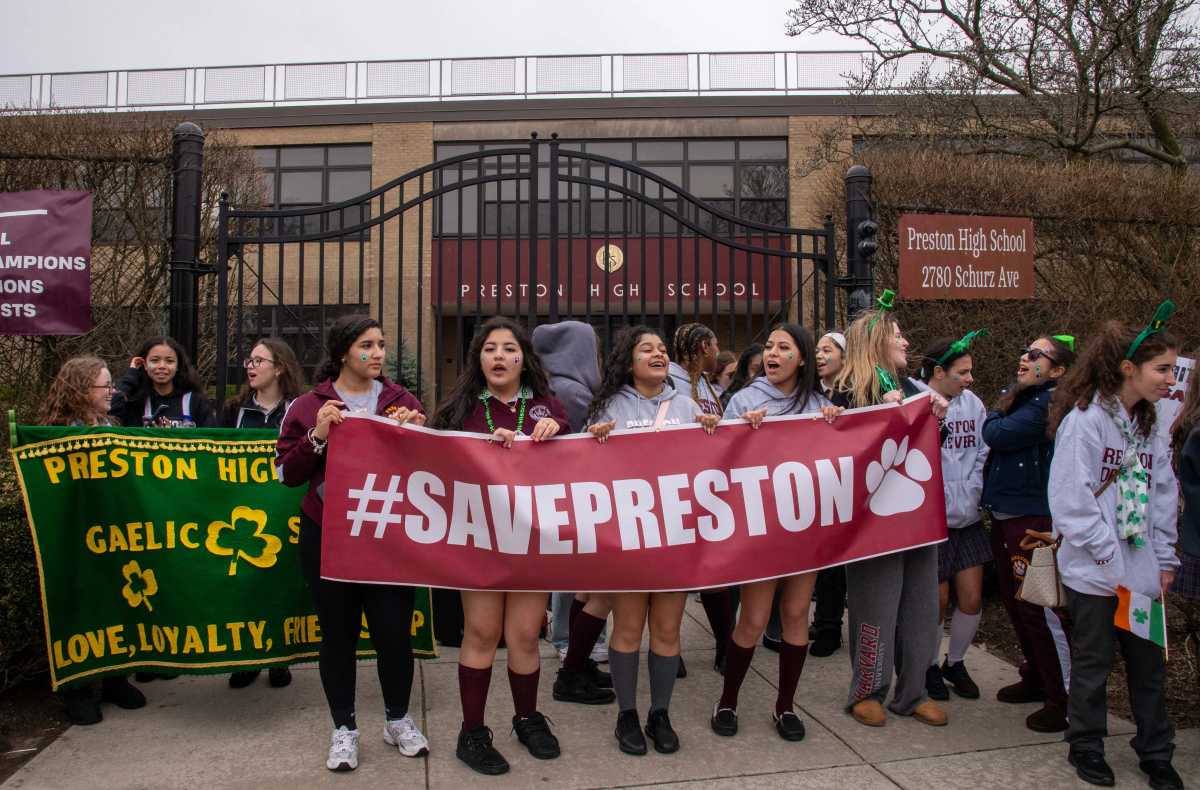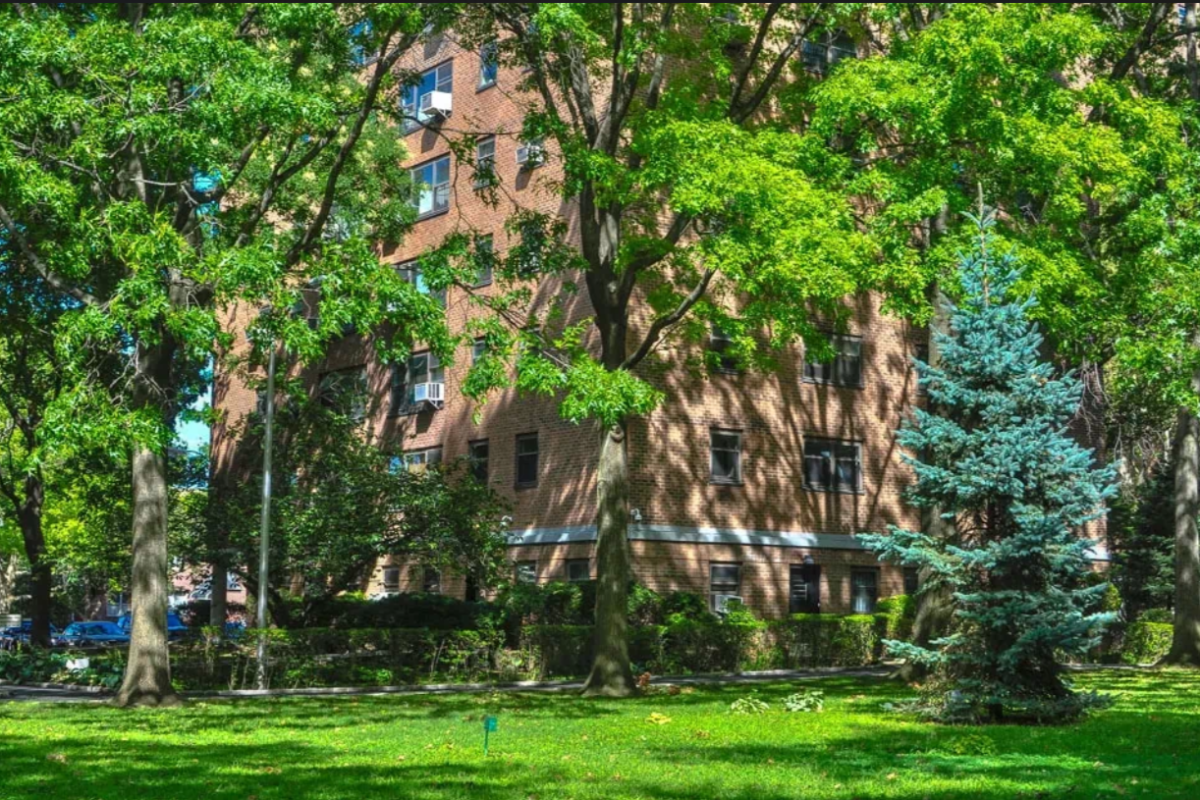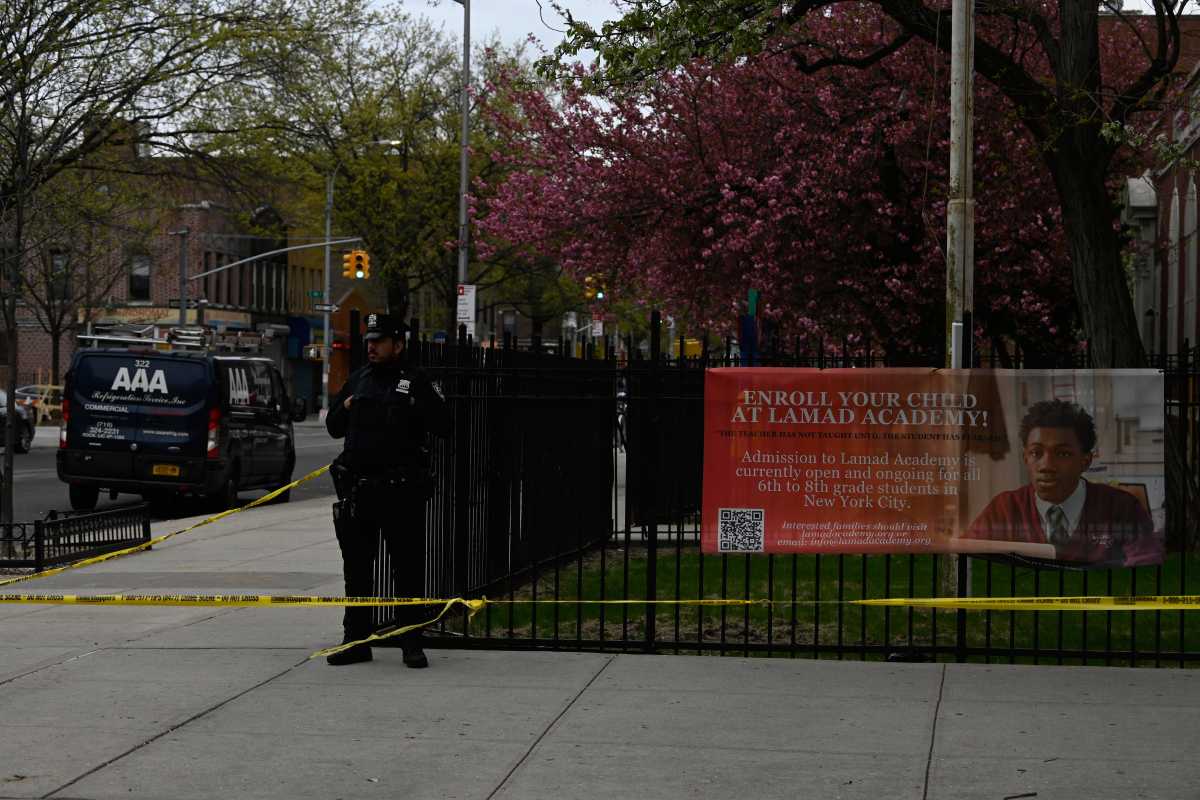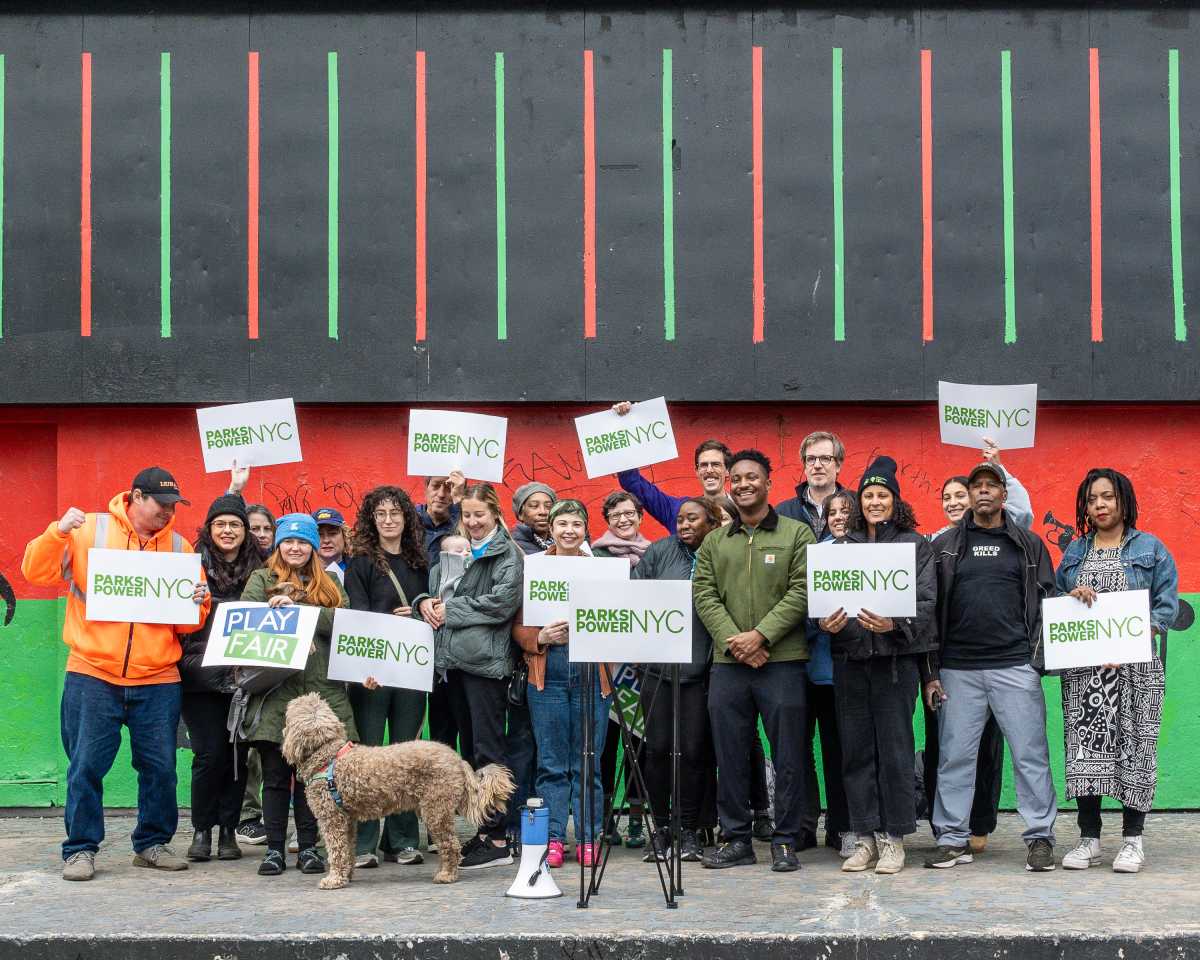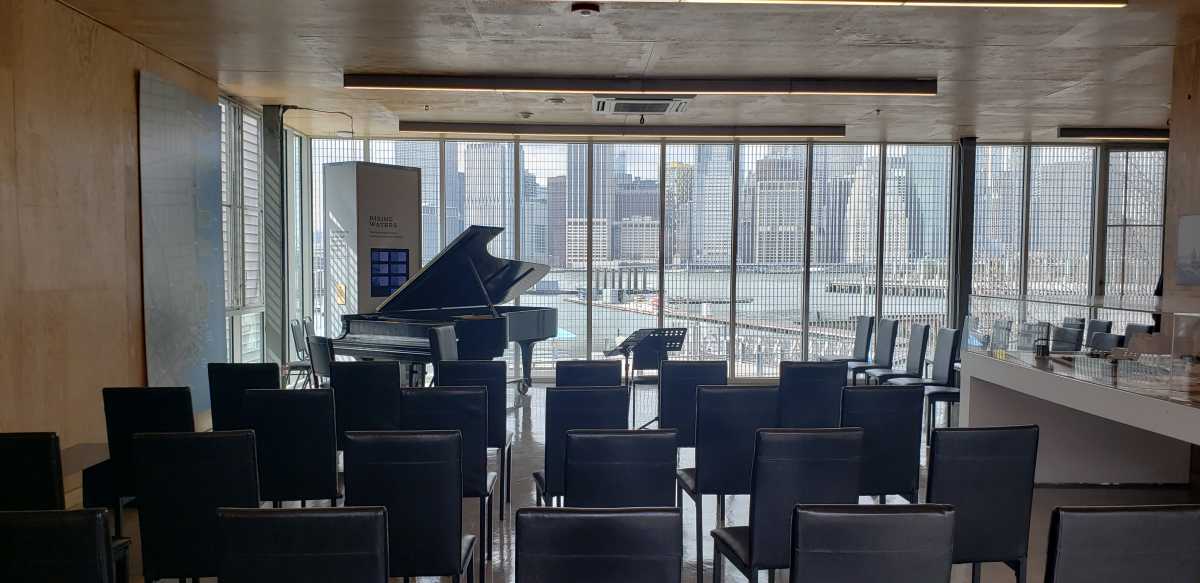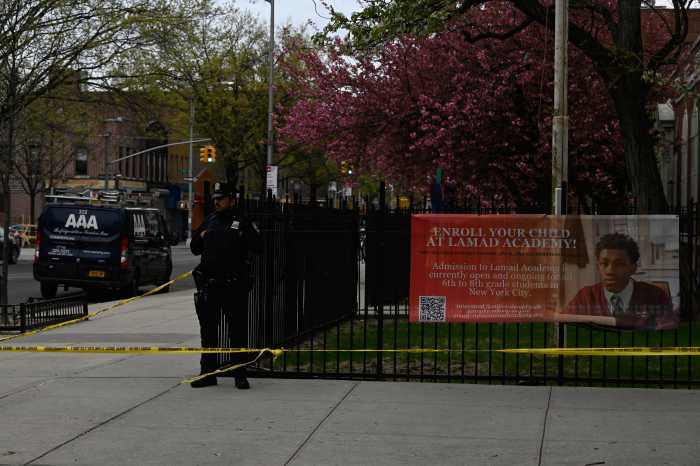
The New York City Housing Authority is exploring maintaining Chelsea properties through an elaborate arrangement that involves demolitions — and local leaders say such a novel approach merits more time for consideration than the authority has set aside.
NYCHA is floating the demolition of two residences within the 11-building Robert Fulton Houses, which is believed would be the first teardown for non-structural reasons in the authority’s history. Residents of the demolished buildings would move into a newly constructed replacement on the campus. The authority would recruit a private sector partner to manage the development, which would gain a second new building comprised mostly of market-rate apartments in a move expected to generate about $344 million for repairs and upkeep at Fulton Houses and the nearby Elliott-Chelsea Houses.
NYCHA’s strained finances make moving quickly imperative, according to Jonathan Gouveia, senior vice president for real estate at NYCHA, who noted the authority will incorporate resident feedback into the currently malleable concept before seeking pitches on the proposal this fall.
Several lawmakers representing Chelsea, however, have asked NYCHA to hold off on the potentially precedent-setting proposal, until a working group comprised of residents, elected officials and members of Community Board 4 present their recommendations on the matter.
In a July 23 letter addressed to NYCHA’s general manager Vito Mustaciuolo and the city’s Deputy Mayor for Housing and Economic Development Vicki Been, City Council Speaker Corey Johnson and his colleagues requested the process be paused until mid-December.
NYCHA tenants must, the letter asserted, “be in the driver’s seat, empowered to consider a range of options and have a voice in their future.”
The community board opposes demolitions, according to a letter it sent NYCHA and city officials on July 30. The board believes NYCHA should instead consider selling development rights that are not being used on its property for use nearby. NYCHA could use this revenue to perform capital work and establish a maintenance fund, the board’s letter said.
“We’re committed to releasing this fall,” said Gouveia, stressing the goal of investing $168 million at Fulton Houses and the remaining $176 million at Elliott-Chelsea Houses before repair and maintenance costs increase. “We feel the need to move forward. Every day we delay, that number just grows.”
NYCHA foresees the Fulton Houses transitioning to a Rental Assistance Demonstration campus, where a private partner signs a long-term lease for a stake in the site and earns profit by managing it. This partner would construct the additional building, which NYCHA envisions offering 30% of its units at below market-rate. Further details, informed by the preferences residents express over the next few months, will be included in NYCHA’s request for proposals, according to Gouveia.
Coupled with the possible demolition of homes some have lived in for decades, tenants have expressed concerns about having fewer rights while under the management of a private firm, about the introduction of market-rate tenants exacerbating the demise of locally-owned businesses, and about the current concept, which would mean the demise of a parking lot and a new, $777,000 playground.
“If you look at this area, we’re overdeveloped,” said Mary McGee, president of the Fulton Houses Independent Tenants Association. “Why aren’t we worthy of having parking lots and playgrounds?”
NYCHA is not committed to building on those precise locations and would be able to consider two or three other locations within the campus, according to Gouveia.
McGee said the lack of affordable supermarkets compels her and her neighbors to take the bus to Walmart in New Jersey to buy food.
The inclusion of a new supermarket in the additional residential building is a top priority, according to Miguel Acevedo, president of the Fulton Tenants Association.
“We’ve lost at least 90 percent of our mom and pop stores, and it doesn’t look like they’re going to come back," Acevedo said.
NYCHA will do its best to bring an affordable supermarket to the site, Gouveia said.
The authority has been bringing tenants to Ocean Bay Apartments in Queens, where residents had their homes renovated when the campus converted to RAD.
Still, some at Fulton Houses worry evictions may increase under private management.
"They can find any little infraction in their lease to get you out," said McGee. "They aren’t here because they care about the community. They’re interested in making money.”
Tenants’ rights will be enshrined in a regulatory framework, which NYCHA will ensure the private company abides by, according to Gouveia.
"We will be very much aware of what’s going on," Gouveia said, noting NYCHA will continue to own the land and existing buildings at Fulton Houses.
Given NYCHA’s millions in unfinanced capital needs, Gouveia said the authority will be scouring its entire portfolio for other opportunities to use RAD.
The potential for a greater shift toward the private sector is misguided and antithetical to the concept of public housing, according to Norman Siegel, a civil liberties lawyer who is advising Fulton Houses residents and representing Fight for NYCHA, a group of tenants and activists pushing to save, restore and expand public housing in the city.
“New York City was once at the forefront of the nation’s commitment to public housing, but now the future of public housing is in question. For the city to think that’s the answer is illusory," Siegel said.
"We’ve never had demolition proposed for any of the public housing units in the city,” said Siegel, who said such a move would “create a terrible precedent that could spread like wildfire.”
From immediate repairs to long-term sustainability, all agree NYCHA’s challenges must be overcome — but who will pay for this, and at what cost, will be debated long after NYCHA’s “concept” for Fulton Houses becomes an action plan.



